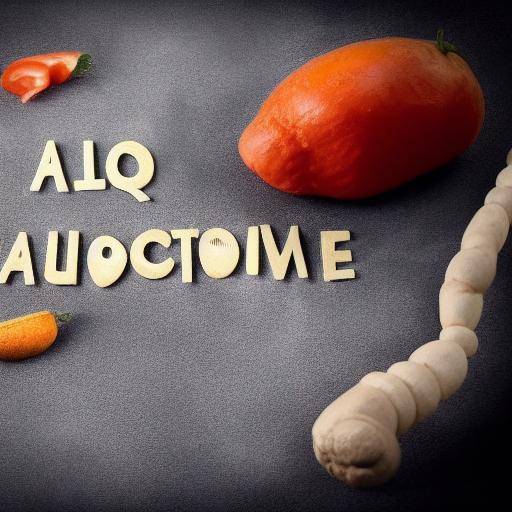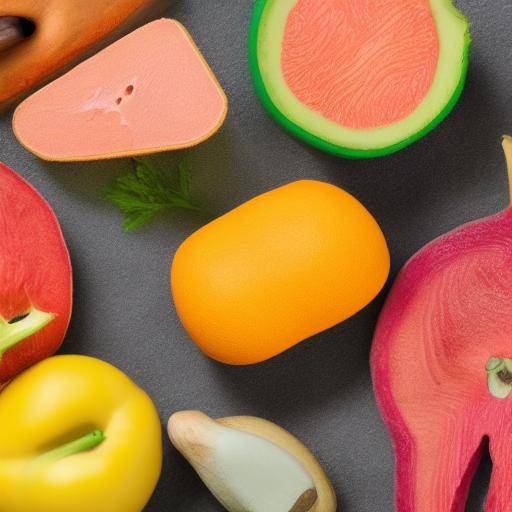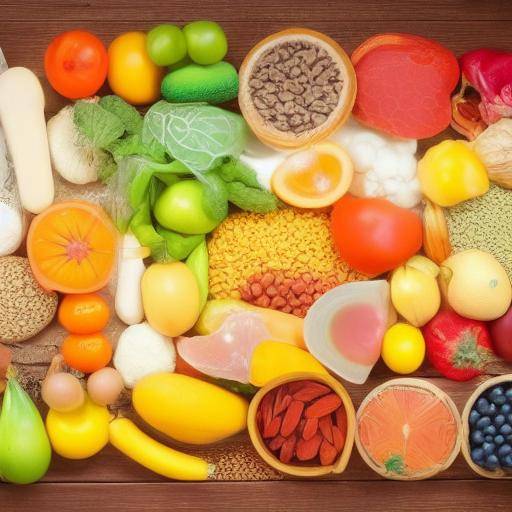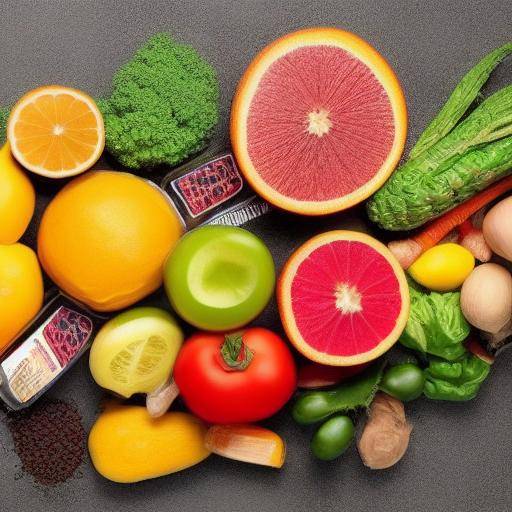
The concept of "self-care" has taken a significant relevance in our times, and nutrition plays a crucial role in this aspect. In the day to day, productivity and well-being are closely linked to the way we feed and care for ourselves. In this article, we will explore the importance of nutrition in self-care and its impact on productivity.
Introduction
Self-care involves all the actions we do to maintain our physical, mental and emotional health. Nutrition is a fundamental pillar of self-care, as the quality of the food we consume directly influences our well-being. In addition, a balanced and adequate feeding gives us the energy and vitality necessary to be more productive in our daily activities.
History and Background
The relationship between nutrition, self-care and productivity has deep roots in the history of humanity. From old societies to present, food has been a determining factor in individual and collective health. Over time, various currents and approaches have been developed in nutrition, reflecting the importance it has had in human life.
Nutrition has evolved from simply being a concern for satiety to become a fundamental pillar of physical and emotional well-being. The first cultures and civilizations already recognized the importance of a balanced diet, and this knowledge has been deepened over the years. The understanding of nutrients and their impact on the organism has been a field of constant evolution, leading to discoveries that have transformed the way we understand nutrition.
Analysis in Deep
Nutrition not only influences physical health, but also has a significant impact on emotional and mental well-being. Scientific studies have shown that certain nutrients have the capacity to modulate brain function, affecting mood and cognition. On the other hand, a poor diet is associated with a higher risk of disorders such as depression and anxiety.
In the workplace, nutrition plays a crucial role in employee productivity. A properly fed worker will have more stable energy levels throughout the day, which translates into a greater ability to concentrate and deliver on his activities. In addition, good nutrition contributes to disease prevention, reducing labour absences and promoting a healthier and productive working environment.
Comprehensive review
It is essential to understand the importance of incorporating healthy nutritional habits as part of self-care. The planning of balanced meals and the quality of the foods we consume are decisions that directly impact our health in the short and long term. Self-care through nutrition not only implies an individual benefit, but has social and community repercussions.
In the area of self-care, nutrition becomes a powerful tool to promote health and well-being. Awareness of the provenance and quality of the foods we consume gives us the ability to make informed decisions that positively impact our health. In addition, nutrition in the working environment is a determining factor in productivity and the working climate, being an integral part of an organizational culture aimed at the integral well-being of partners.
Comparative analysis
By comparing nutrition to self-care and physical well-being, the interconnection between these concepts is evident. Self-care encompasses multiple dimensions that include nutrition as a fundamental part. Physical well-being, for its part, is directly influenced by the quality of food and nutritional habits. This interrelation highlights the importance of considering nutrition as an essential component of self-care and productivity in all areas of life.
Practical Tips and Accessible Recommendations
- Meal Planning: Dedicate time to plan your weekly meals, including varied and balanced foods.
- Eating consciously: Mass slowly, enjoy every bite and pay attention to the signs of hunger and satiety of your body.
- Hydrating: Keep well hydrated, prioritizing water consumption and avoiding sugary drinks.
- Healthy Snacks: Have at hand healthy snack options to avoid falling into unnutritional temptations.
- Avoid ultraprocessed foods: Reduces the consumption of foods that contain artificial additives, trans fats and high levels of sugars.
- Nutritional Balance: Try to include in your meals a variety of foods that give you the nutrients you need to maintain your health.
Industry Perspectives and Expert Reviews
The opinions of nutrition and well-being experts agree on the importance of integrating healthy eating as part of self-care. Health professionals emphasize the need to promote nutritional education and encourage eating habits that contribute to global well-being. Human resources experts and business management also highlight the advantages of promoting nutrition as part of labour welfare policies, recognizing their direct impact on productivity and the working climate.
Case Studies and Practical Applications
Numerous cases have been documented in which the implementation of nutrition programmes as part of self-care has generated positive impacts on productivity and well-being. Companies that have promoted healthy nutritional habits among their employees have observed significant reductions in absenteeism rates, as well as improvements in the levels of energy and concentration of their staff. These cases exemplify the positive effect that an organizational culture focused on self-care and nutrition can have on the work performance and satisfaction of the collaborators.
Future Trends and Predictions
As awareness of the importance of self-care and nutrition continues to grow, companies and organizations are expected to increasingly integrate comprehensive welfare strategies into their labour policies. Nutrition, as a fundamental part of self-care, is positioned as a key element in building healthy and productive working environments. There is an increase in the adoption of nutrition and well-being programmes at work, as well as a greater emphasis on nutritional education as part of disease prevention and health promotion policies.
Conclusions
In short, nutrition plays an essential role in self-care and productivity. Through healthy eating habits, we can strengthen our physical and emotional health, driving our ability to perform effectively in all areas of our lives. By prioritizing nutrition as an integral part of self-care, we contribute to the development of a healthier, productive and balanced society.
Frequently asked questions
Why is nutrition important in self-care?
Appropriate nutrition is essential to maintaining physical, mental and emotional health, which in turn influences our ability to take care of ourselves and to play productively in our daily activities.
How can I integrate nutrition into my daily self-care?
You can integrate nutrition into your daily self-care through balanced meal planning, selection of nutritious foods, and conscious attention to your eating habits.
What is the impact of nutrition on labour productivity?
A balanced and healthy diet can provide stable energy levels and promote physical health, which in turn has a positive impact on labour productivity and well-being in the working environment.
Is there any relationship between nutrition and emotional self-care?
Yes, nutrition influences emotional health by affecting the balance of neurotransmitters and brain function, which can impact emotional self-care and mood regulation.
How can I foster a culture of nutrition and self-care in my working environment?
You can foster a culture of nutrition and self-care in your working environment by promoting nutritional education, offering healthy choices in common spaces and providing support for the adoption of healthy habits among partners.
What are the long-term benefits of prioritizing nutrition as part of self-care?
Prioritizing nutrition as part of self-care can help prevent chronic diseases, promote healthy ageing and improve quality of life over time.
How can I get personalized support to improve my nutrition as part of my self-care?
You can look for the support of nutritionists, dietitians or health professionals specializing in the design of personalized nutritional plans that align with your goals of self-care and well-being.
Conclusion
In conclusion, nutrition plays a key role in self-care and productivity, influencing multiple aspects of our daily lives. By cultivating healthy eating habits and prioritizing nutrition as an integral part of self-care, we can strengthen our physical, emotional and mental health, enhancing our ability to be productive and live in a full and balanced way. The integration of nutrition into self-care not only entails individual benefits, but also builds solid foundations for the common well-being and sustainable growth of our communities and working environments.






















































